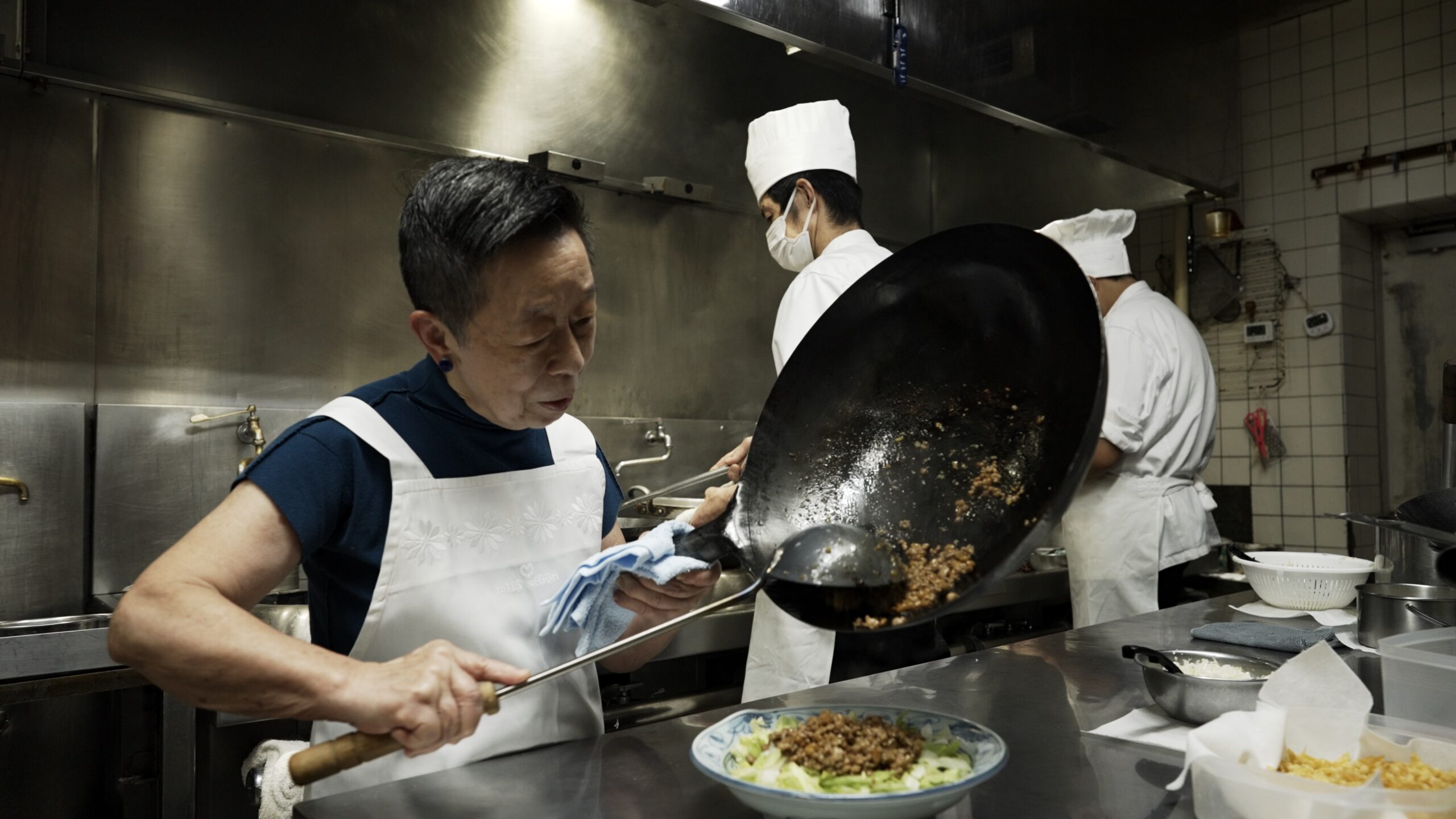There is something about eating dumplings that is almost ethereal. I remember my first time having soup dumplings – the puncture felt like piercing a veil. The burst of warm soup disrupted all I had known about soup and dumplings separately, and by some well-executed design, it was all happening in one spoon.
Chewing on GIFTS FROM THE KITCHEN was a beautiful encapsulation of two worlds I thought were separate: food and film. That close-your-eyes-and-be-enveloped-by-the-symphony kind of good! How do I share this experience with you? Being a food critic is different from being a movie critic. With good food, you want to share it with your audience by tantalizing them towards the experience. If it’s a good film, you want to analyze and appreciate it without spoiling the story. GIFTS FROM THE KITCHEN is a work of art from the food through the film and back again. This food and film will move you.
In a seat across the Pacific, or wherever this film finds you, get ready to peer inside. The opening scene takes you down the steps and past the line out the door. Rather than waiting, we are guided by whimsical music through the back door and right into the heart of Fumin. Fumin is a Taiwanese-style soul food restaurant established in Jingumae, Tokyo, back in 1971. Established from Taiwanese roots in Japanese soil, Fumin is a product of a young woman named Sai Fumi’s multicultural background that led her through a bountiful life. As the eldest of four, she assisted her father’s culinary prowess and helped feed their full house. She didn’t receive any formal training, but by some beyond design, cooking was hers and hers to share.
We witness Fumi’s origin story and get a glimpse of what made her such an invaluable artist, starting with a visit from a friend. It is through these visits to her kitchen where we see relationship and creativity as the crux of Fumi’s success. Both tend to open up a window where there may have once been a wall. Opening that window allowed her eclectic environment to stream in and her creativity to pour out. Meeting various palettes and personal preferences lent to her developed taste, abilities for receptivity, and success.
Fumin is located in the arts district and became an interactive canvas with food as the medium for her and her guests to play. Kikuchi does a great job sharing a range of stories and dishes, but I’d like to point out that over the course of her 45-year career, there were many more encounters than shared in the film. Each segment Kikuchi frames reveals a piece of the puzzle that helps us unveil another gift of this kitchen. He strings tender recollections with beautifully plated, mouthwatering dishes and ties the story shared to the present. He does this over and over again. In this framework, he reveals Fumi’s creativity and how this kitchen is not just hers but theirs. Take, for example, a famous illustrator in Japan, Makoto Wada, who loved Fumin; his widow got to recollect and share their engagement on camera. Not only was it theirs individually but as a couple, as well as sharing this joy with new guests. It was Mr. Wada who recommended putting wontons on the menu, a glorious moment for him when it made the cut. Fumi listened and managed to create many treasured dishes. Their treasured dish and the memory of the people who brought this dish to life gets to be appreciated by many visitors to come. Food is powerful like that – it can transcend the given moment and make it decades down the line. We get to share a comfort from years past with the present. And film is powerful like that, sharing these heartfelt stories beyond the timeline and connecting people through a memory, through a taste.
We haven’t quite figured out how to share scent through a screen, but through this film, it was as if I was transfixed by some kind of waft from the kitchen. I had to taste it for myself. I got off the train at Harajuku station and walked past all the neon lights with my head held high. I knew exactly where I was going. I turned from the bustle onto subdued streets lined with trimmed trees and chic designer stores of Omotesando. With excitement, I strutted across one more major crosswalk and down the same stairs that opened up on the big screen to find my spot in line at Fumin. Who knows if I would’ve made my way without first experiencing GIFTS FROM THE KITCHEN. And now I can attest to the glimmer found in this basement. The warm soup found in each story paired perfectly with the structure of the film that portrayed Fumi and her restaurant so magically. Fumi is no longer working at Fumin, but for some reason, I couldn’t stop smiling. Even as I sat in line, it was as if her smile still emanated from the kitchen. I felt her nephew’s heart of gold as well as the joy from her staff as I was seated right next to the kitchen. It was as if I had a front-row seat to the magic. And then they arrived – nuggets of golden juicy wontons lay tucked away under a mountain of slivered negi (green onions). The finishing touch was a splash of sizzling hot oil, which made the mountain a little more conquerable with a sidekick of ginger ponzu sauce. It’s no surprise it’s become somewhat of a world wonder, one of those must-visit places in this part of the globe. As I walked away and even as I sat on the plane home, for some reason, I just couldn’t stop smiling.

Chari Horton is native to Hawai’i yet doesn’t carry Hawaiian blood. Her mother is from Japan and father from Louisiana and she has been on a search for where she comes from since she was a little girl. She continued her quest overseas and graduated from University of Southern California majoring in East Asian Language and Cultures and minoring in Interpersonal Communication. She has gathered that we come from what we care for. Through the pandemic food sovereignty in Hawai’i beckoned her home. Chari is passionate about health and wellness and believes restoring our relationships with our land, ourselves and each other is where our wealth lives. As a HIFF HOCCI Mentee, Chari has an opportunity to contribute to our collective restoration by amplifying our voices and sharing our stories.
The HIFF ONLINE CREATIVES & CRITICS IMMERSIVE (HOCCI) program supports sustainable film criticism in Hawai’i through mentorship and paid career opportunities for Hawai’i-based AANHPI critics. The mission of HOCCI is to broaden diversity in film criticism across the Pacific and use influencer branding strategies to spark career opportunities. The 2024 HOCCI is supported by Critical Minded, a grant-making and learning initiative that supports cultural critics of color in the United States.



